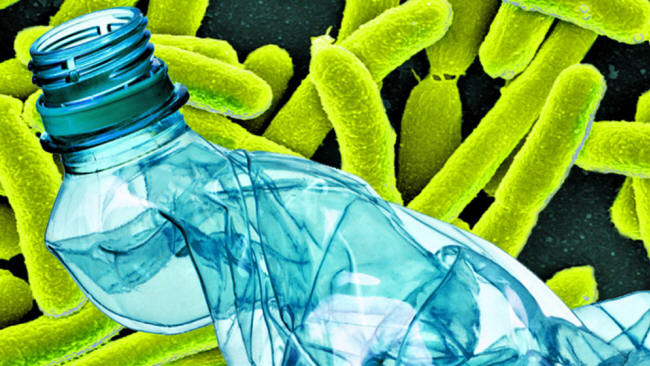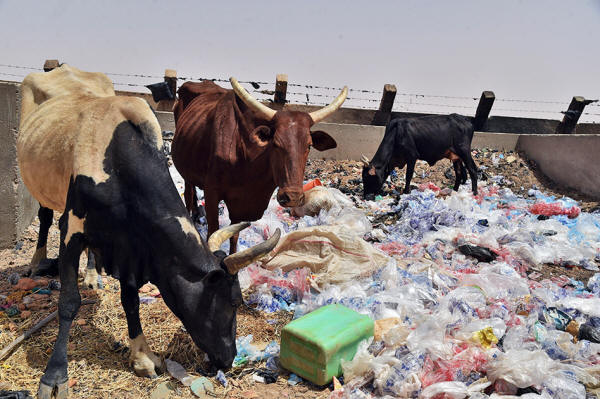|
from
BigThink Website breaks it down into terephthalic acid and ethylene glycol (two environmentally benign substances) and feasts on them. Image: Shutterstock/Wikicommons/Big Think
A few years ago, at an Osaka, Japan recycling plant, scientists discovered a bacteria (A Bacterium that Degrades and Assimilates Polyethylene terephthalate) called Ideonella sakaiensis that eats one of the most common forms of plastic, known as polyethylene terephthalate or PET.
That form of plastic is found in water bottles, food containers, and polyester. You know the items with the "1" symbol in your recycling bin? Those tend to be made of PET.
Researchers from Britain's University of Portsmouth and the U.S. Department of Energy's National Renewable Energy Laboratory (NREL) were trying to model the enzyme and ended up with a mutant strain of the same thing, with a crucial difference:
University of Portsmouth professor John McGeehan, who conducted the research with Gregg Beckham, went even further in a statement.
There's speculation
that, with further mutations, the PETase mutant enzyme might even be
used to degrade/eat the newer kinds of plastic known as
Polyethylene furandicarboxylate or
PEF.
And here's author Laurence Gonzales on our 'culture of garbage':
|



